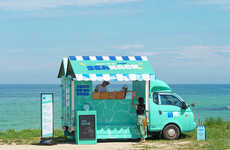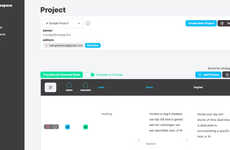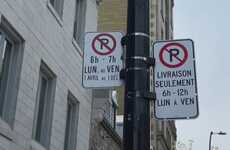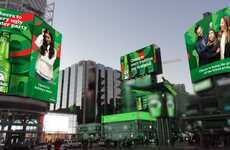Seoul is Asking the Public to Submit Translation Errors
Alyson Wyers — October 30, 2016 — World
References: english.seoul.go.kr & springwise
Although translation errors can be quite humorous and often find themselves in listicles online, they can also present a host of problems for travelers and visitors trying to orient themselves in foreign lands.
The capital city of Seoul in South Korea is using a crowdsourcing campaign to rectify translation errors. Prizes are offered to those to correctly report unfortunate translation mistakes they see on street signs. The campaign just occurred throughout the months of September and October and specifically targeted poorly translated signs in English, Chinese and Japanese in tourist areas as well as other public places and transportation stops.
This is an example of how crowdsourcing can be used to improve the experience of tourists while also encouraging users who might not benefit directly from their results.
The capital city of Seoul in South Korea is using a crowdsourcing campaign to rectify translation errors. Prizes are offered to those to correctly report unfortunate translation mistakes they see on street signs. The campaign just occurred throughout the months of September and October and specifically targeted poorly translated signs in English, Chinese and Japanese in tourist areas as well as other public places and transportation stops.
This is an example of how crowdsourcing can be used to improve the experience of tourists while also encouraging users who might not benefit directly from their results.
Trend Themes
1. Crowdsourcing Translation Fixes - Crowdsourcing campaigns can be used to identify and rectify translation errors on street signs, improving the experience for tourists.
2. Improving Tourist Experience - Using crowdsourcing to correct translation mistakes on signs helps orient travelers in foreign lands.
3. Incentivizing User Participation - Offering prizes to those who report translation errors encourages users to actively contribute to sign correction campaigns.
Industry Implications
1. Tourism - Crowdsourced sign correction campaigns can enhance the tourism industry by improving the experience of visitors in foreign countries.
2. Language Services - By targeting poorly translated signs, crowdsourcing can create opportunities for the language services industry to offer professional translation and localization services.
3. Public Administration - Government agencies can leverage crowdsourcing to identify and fix translation errors in public spaces, improving communication and accessibility for locals and tourists alike.
0.5
Score
Popularity
Activity
Freshness






















